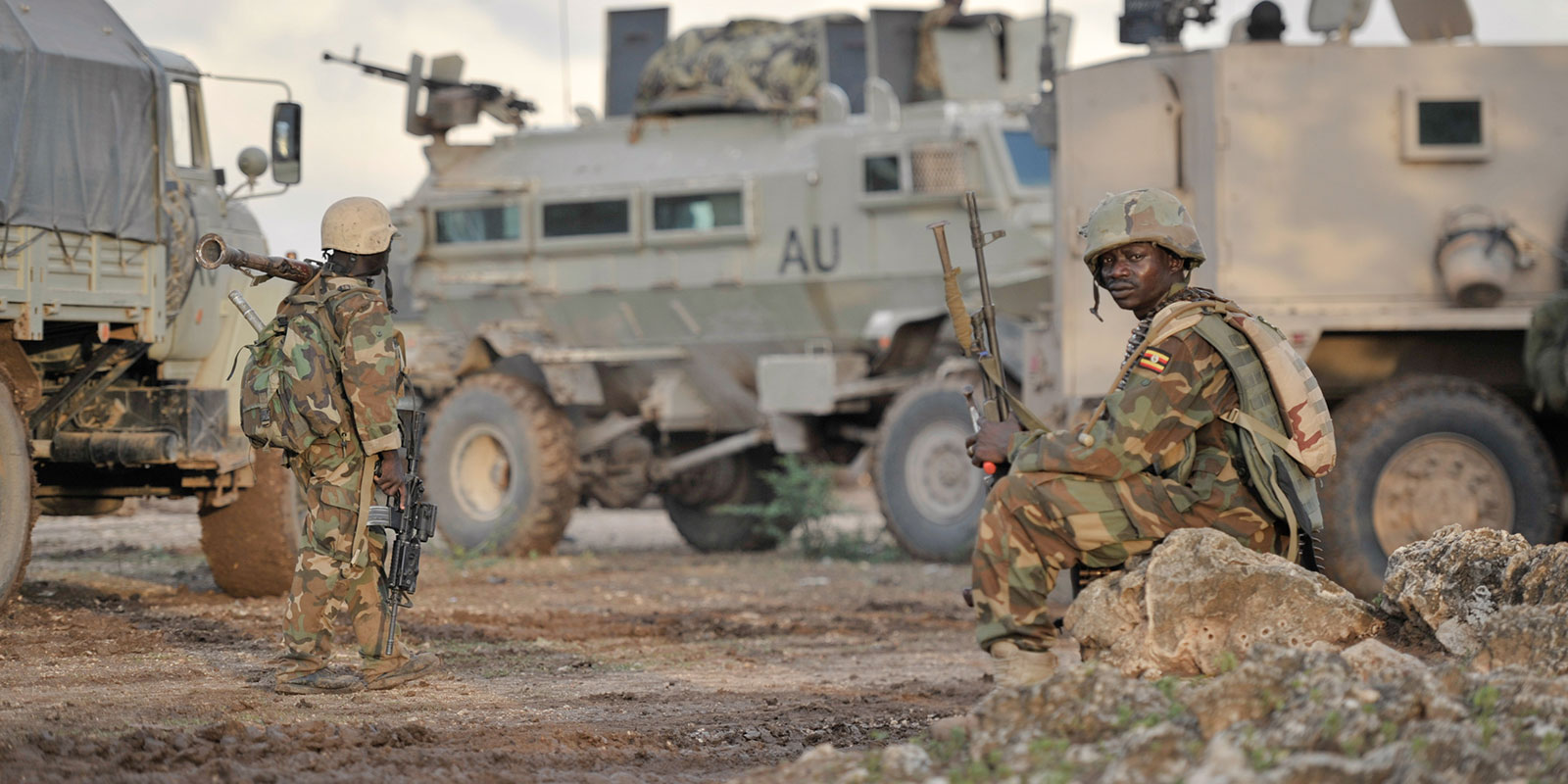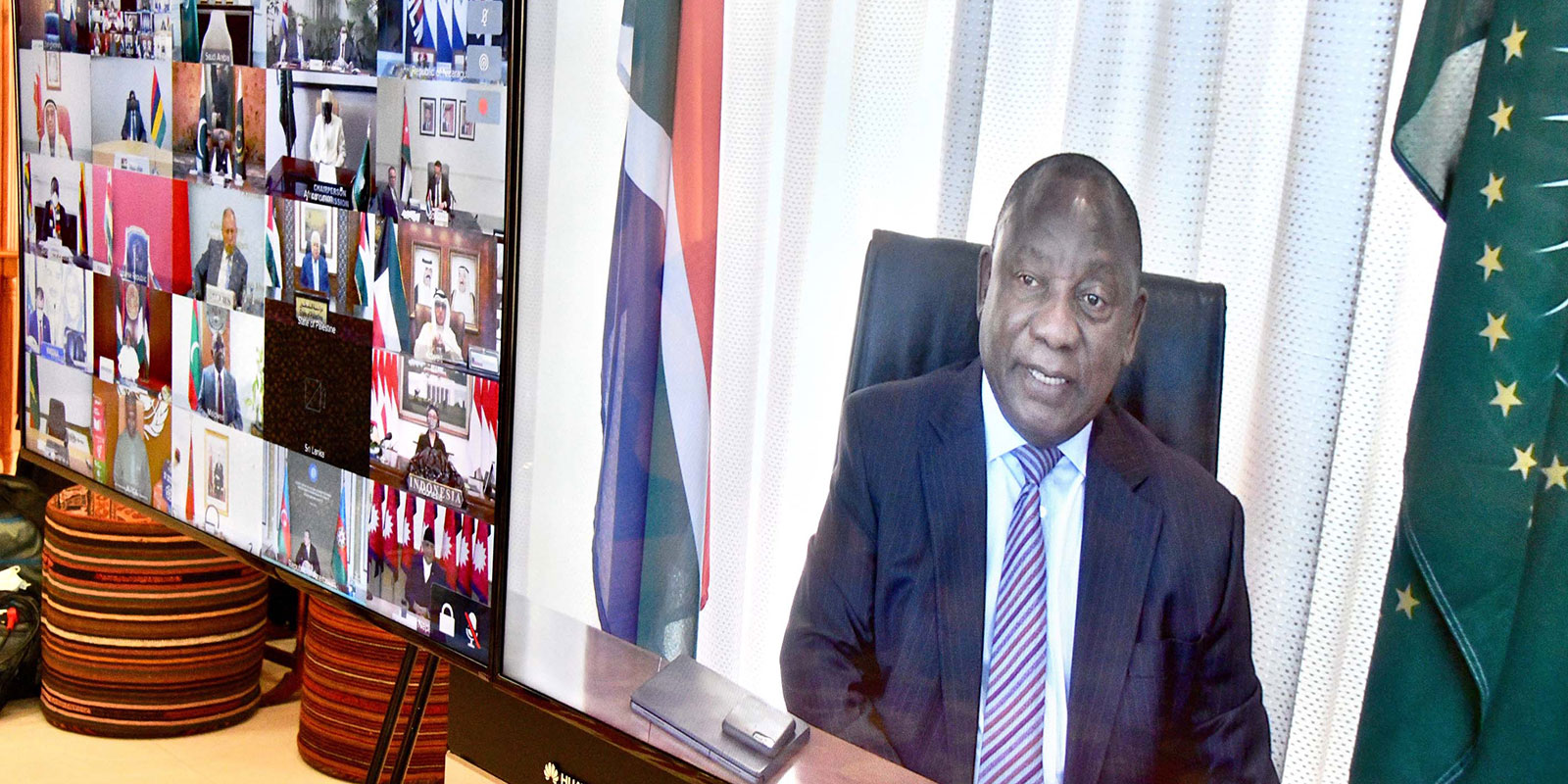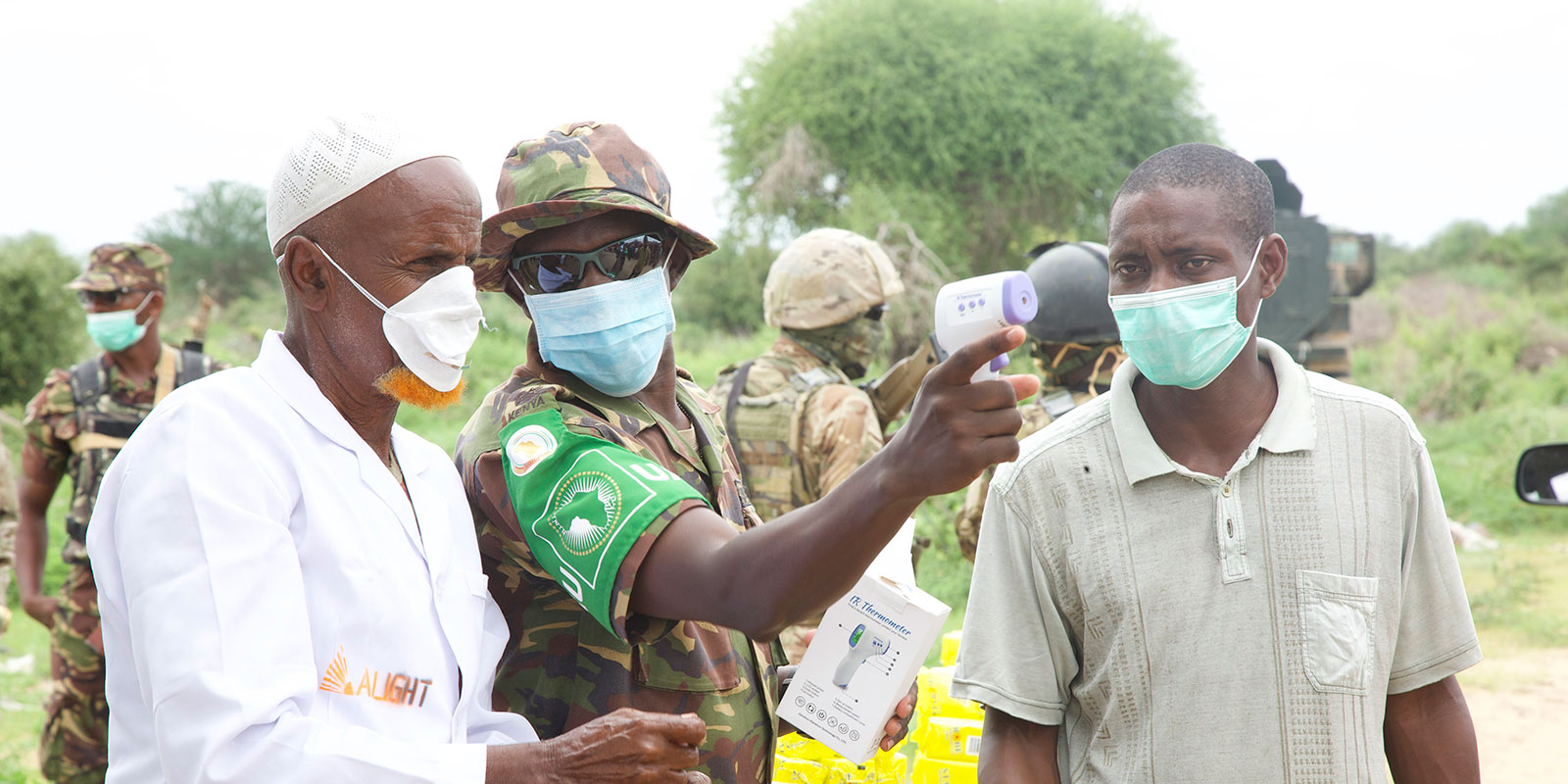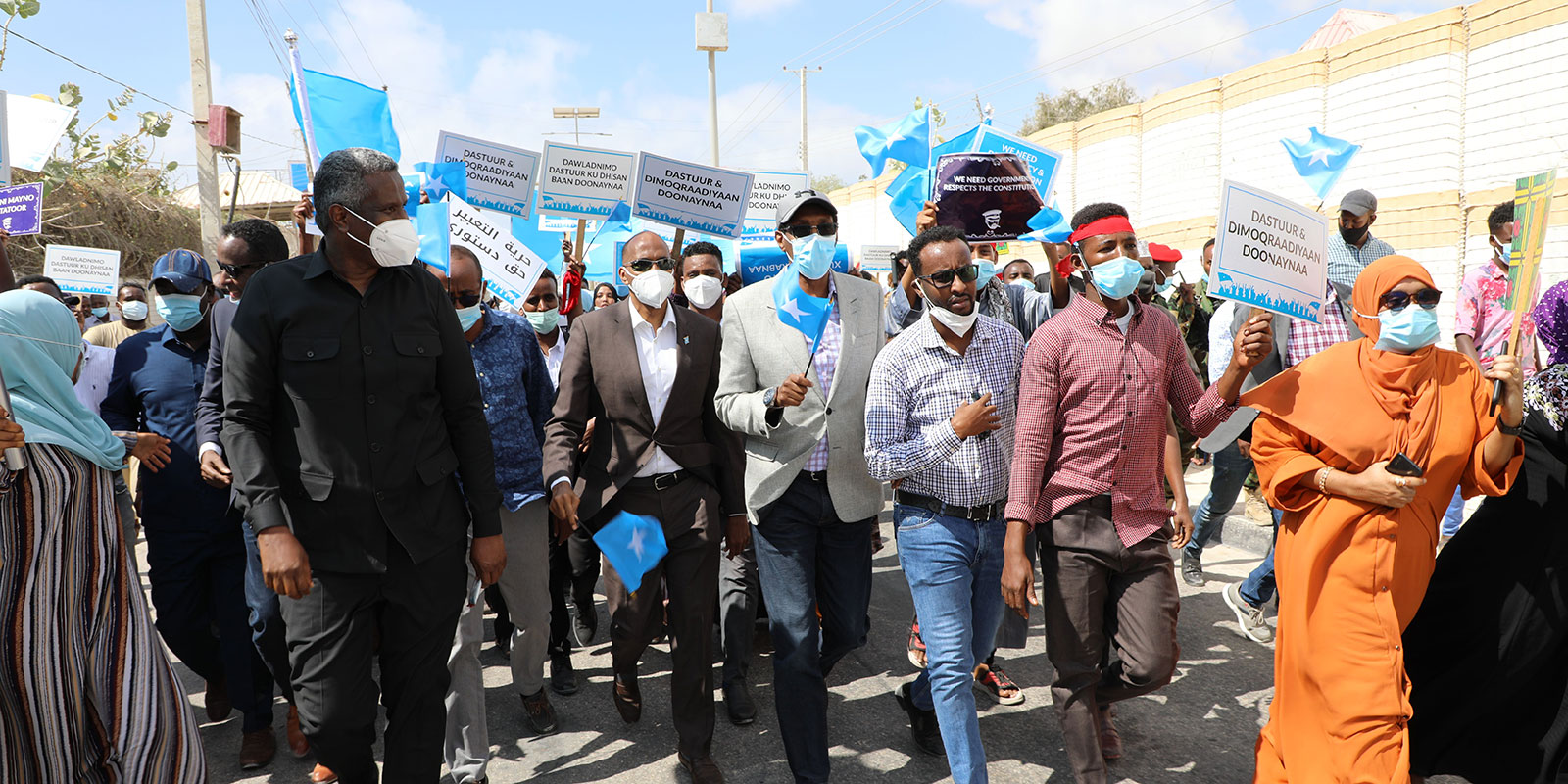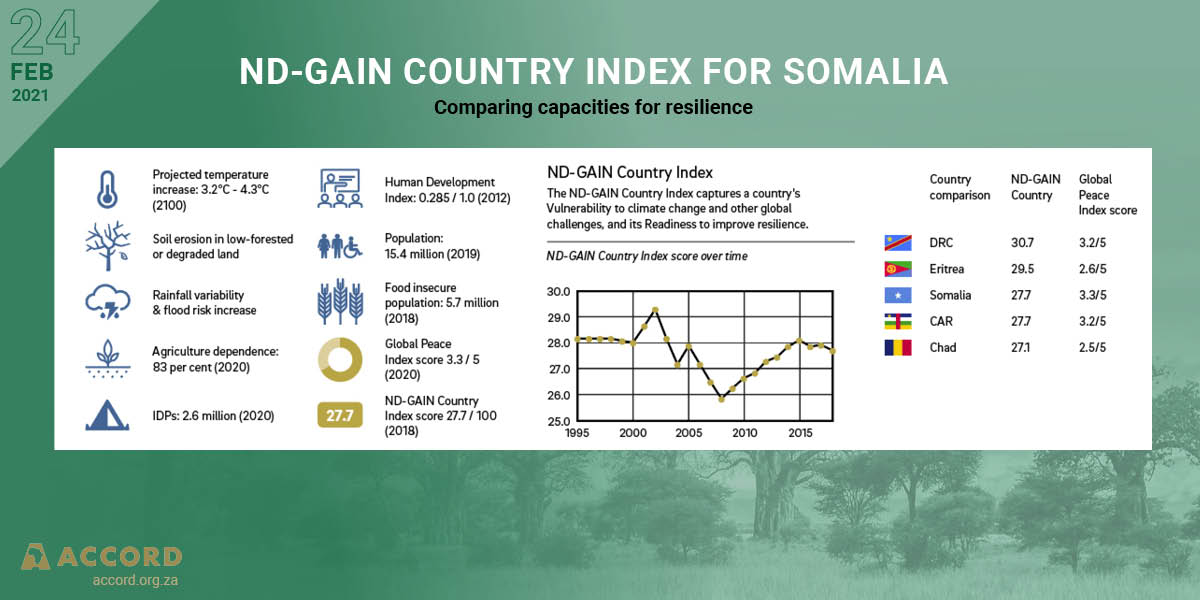In this week’s Monitor we feature Ambassador Said Djinnit, Senior Political Advisor at ACCORD, who assesses the significance of the 34th AU Assembly of Heads of State and Government, that took place in Addis Ababa, and remotely, earlier in February.
This week we also focus on the renewal of the mandate of the African Mission in Somalia (AMISOM) which is being discussed in the UN Security Council this week. Professor Thomas Mandrup reflects on the progress achieved by AMISOM to date, as well as the choices facing the Security Council. Yusuf Mussa sketches the background leading up to the current political crisis in Somalia, and Anab Ovidie Grand and Kheira Tarif unpacks the climate-related security risks facing Somalia.

